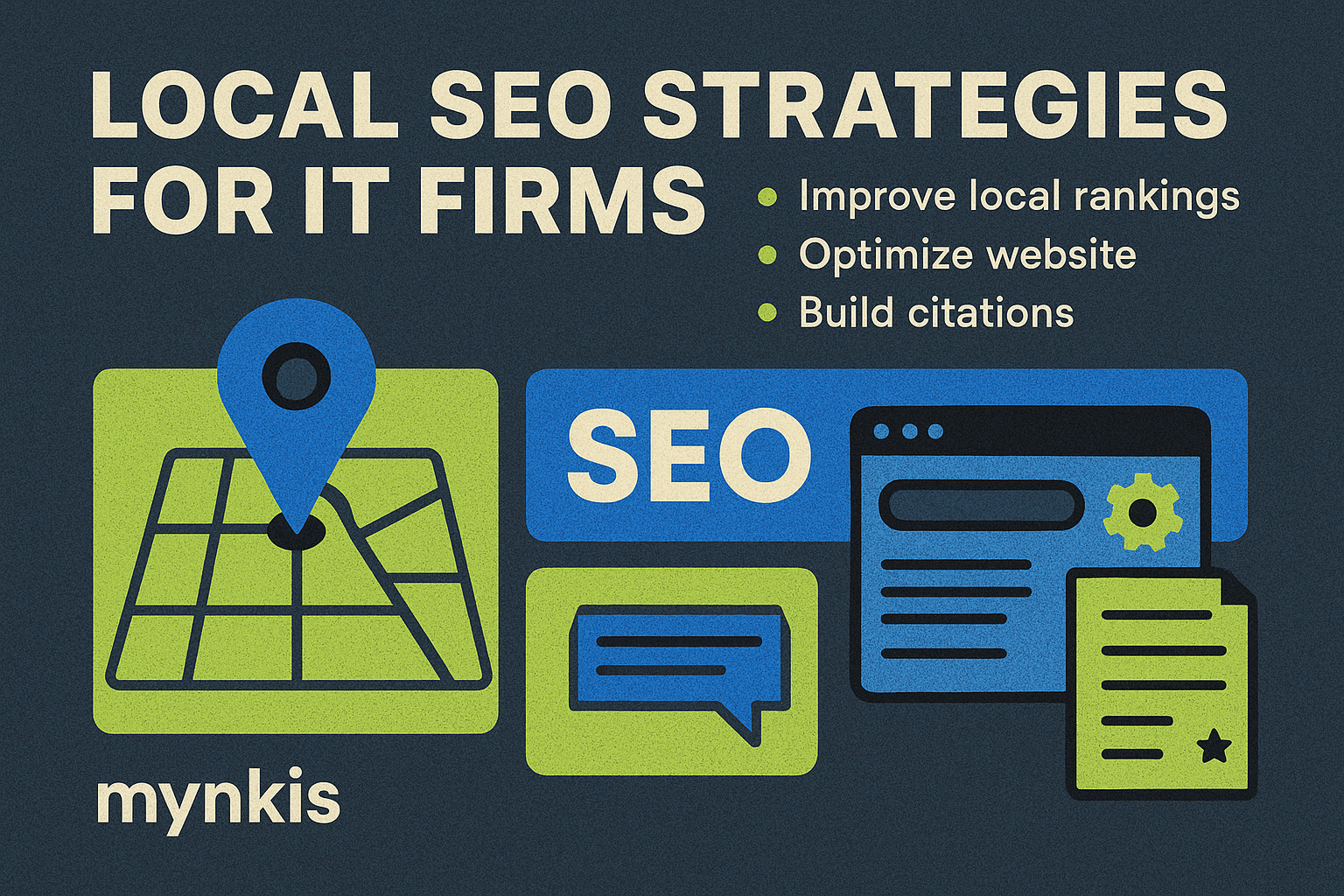Schedule a Demo
Every IT company, from startups to established giants, has unique offerings and target markets. I've worked with numerous technology firms, helping them refine their SEO strategies to meet their specific goals. Developing a bespoke SEO blueprint allows these companies to focus on keywords and strategies that resonate with their business objectives. Your journey towards local SEO success begins with understanding the particularities of your market.
For IT companies aiming to enhance local visibility, nothing beats location-specific keywords. I've seen firsthand how integrating terms like "IT support San Francisco" or "software development Los Angeles" can skyrocket your visibility within your desired locales. It's not just about generic terms; the more specific you get with your keyword selection—like targeting "cloud services in Orange County"—the higher your chances of capturing the local market that's more likely to convert.
One effective strategy for IT firms is combining services with locations. An IT company specializing in cybersecurity could target "cybersecurity solutions San Diego," for instance. This not only brings a focus to their niche but also increases the likelihood of ranking higher in search results for local queries. Understanding what services your target clients are searching for, coupled with where they're looking, is the key to this approach.
In my experience, long-tail keywords offer a goldmine for IT firms. These detailed keyword phrases, such as "affordable IT consultancy for small businesses in Sacramento," directly address specific needs and geographical locations. They're less competitive and can significantly improve your site's search ranking. By tapping into the specificity of long-tail keywords, you open doors to highly targeted, quality traffic.
Implementing local SEO best practices is crucial. For IT companies, this means having up-to-date Google My Business profiles and consistently receiving and responding to reviews. When working with clients, I stress the importance of accurate NAP (name, address, phone number) information across the web, because consistency is king in the world of local SEO. Additionally, having your business featured in local directories bolsters your online presence and significantly aids in local search rankings.
User intent plays a pivotal role in shaping an SEO strategy that resonates with your target audience. I guide my clients toward understanding what their prospective clients are truly seeking online—whether informational, navigational, or transactional searches. For an IT firm, aligning your content with user intent can involve creating educational blog posts or clear service pages that satisfy users' search purposes, thereby increasing the relevance and authority of your site in local searches.
The content you create can strengthen your local connections. As you develop articles, videos, or case studies, I always encourage weaving in local relevance—mention local events, landmarks, or businesses when appropriate. This not only increases the likelihood of capturing local interest but also helps in building a relationship with the community. Use your platform to showcase how your IT services play a pivotal role in local success stories.
'Near me' searches continue to rise, offering IT companies another avenue for boosting local visibility. Including terms like "IT consultant near me" or "web development company near my location" within your content can heighten your chances of appearing in these geo-targeted searches. My advice? Monitor your analytics for any upward trend in 'near me' keyword searches and adapt your SEO tactics accordingly.
Voice search has become increasingly prevalent, and IT firms need to adjust their SEO strategies to this trend. When optimizing for voice, focus on conversational keywords and phrases people are likely to use. For example, a potential customer might say, "Find an IT service provider in Santa Clara." By optimizing your content with these natural language patterns, you'll position your IT company to rank well in voice search queries.
Blogging can be a powerful tool for SEO, especially for IT companies wanting to establish themselves as industry leaders. I've seen how consistently publishing content related to your services—like enterprise web solutions or custom software development—can significantly boost your site's SEO. Craft your blog posts to address the common challenges your local audience faces, providing solutions that cement your position as an invaluable resource in their technological journey.
Understanding what your local competition is up to is crucial in SEO. By analyzing their keyword strategies for local SEO, you can identify gaps in their tactics and uncover opportunities for yourself. I often advise my clients to investigate which keywords their competitors rank for and how they use them in their content. Use tools like Google Keyword Planner or SEMrush to gain insights and adjust your strategy to stand out in the local IT market.
Search engines favor websites with regularly updated content. For IT companies, this means keeping your blogs, case studies, and service pages current with the latest industry trends, technologies, or news. Reflecting on my own journey in helping clients with their SEO, I've found that periodic content refreshes—including keyword revisions—maintain and often improve search engine rankings. Don't let your site grow stale; keep it vibrant and SEO-optimized.
Incorporating schema markup on your website is like giving search engines a clearer understanding of your content's context. For IT firms, using schema for services or local business schema can enhance how search engines interpret and display your information in results. From my experience, it can lead to rich snippets, which can improve click-through rates and better overall SEO performance. Don't underestimate the power of structured data to amplify your local SEO efforts.
Local link building remains one of the pillars of local SEO for IT companies. By establishing relationships with local businesses and organizations, you can earn authoritative backlinks. These links signal to search engines that your IT firm is a valuable and trusted player in the local market. I advise clients to participate in local events, sponsor community initiatives, or collaborate on local charity projects as ways to earn those valuable local links.
